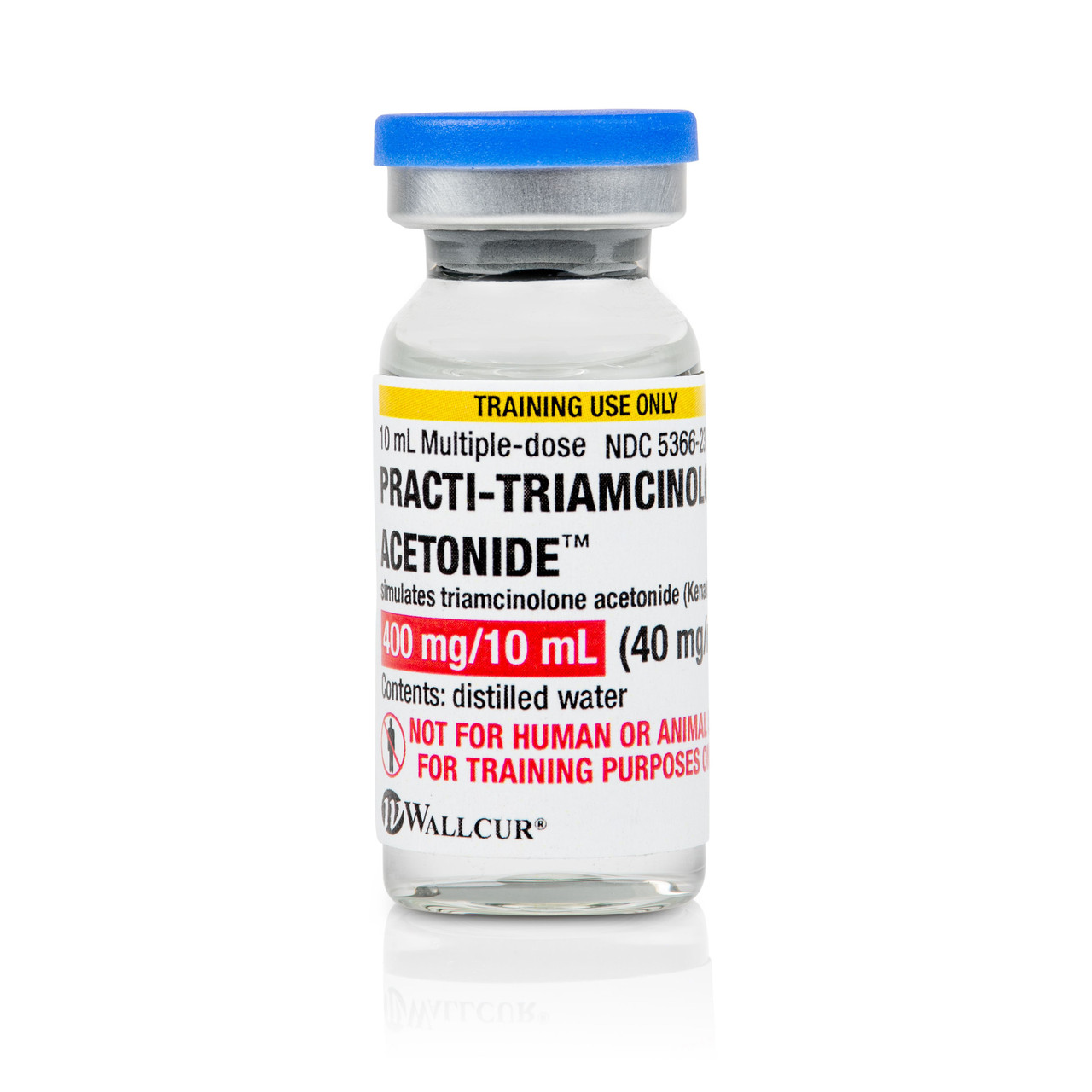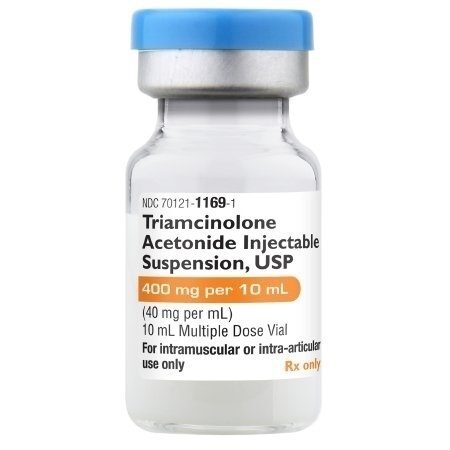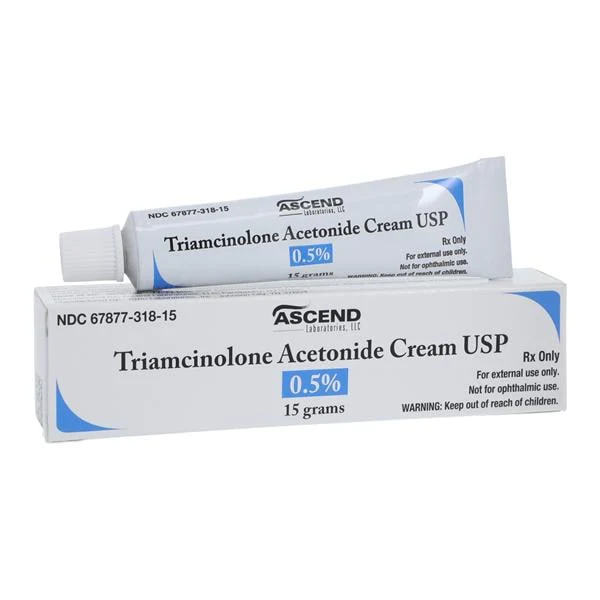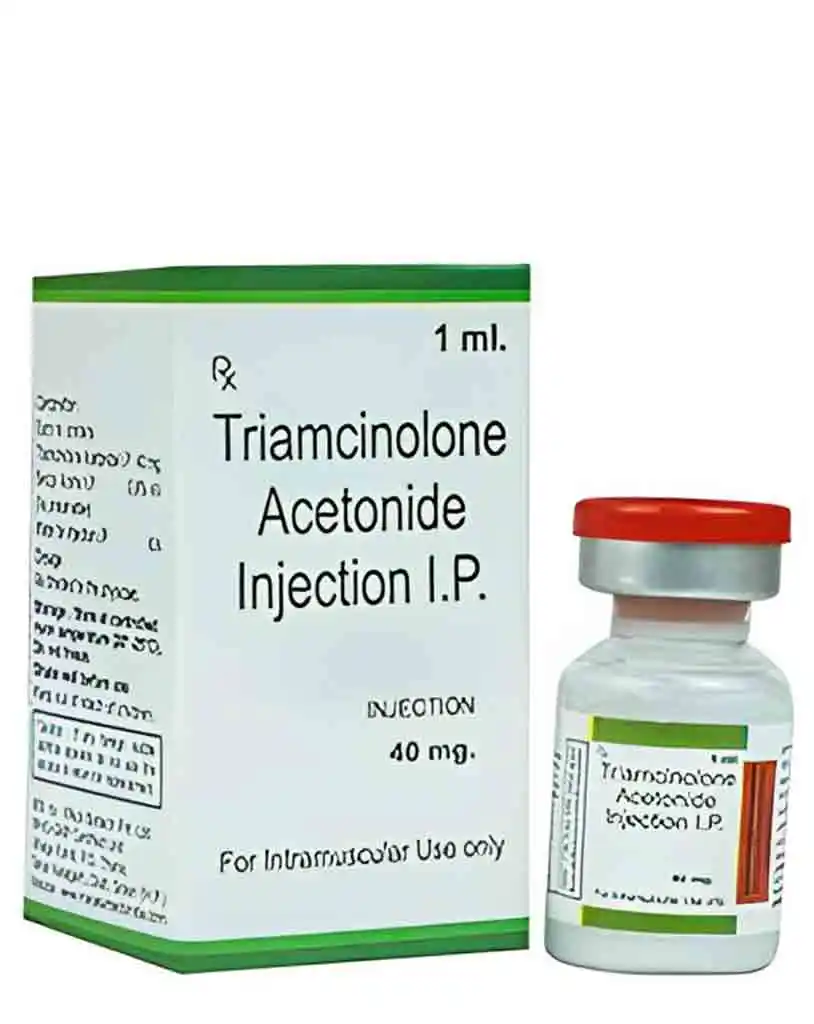Description
Triamcinolone: A Powerful Medication with Versatile Applications
Triamcinolone is a synthetic corticosteroid, a powerful medication known for its anti-inflammatory and immunosuppressant properties. Widely used across various medical specialties, it comes in several forms, each tailored for specific applications and offering relief from a range of conditions. Understanding triamcinolone, its uses, benefits, and potential side effects is crucial for both patients and healthcare professionals.
What is Triamcinolone?
Triamcinolone mimics the effects of naturally occurring hormones produced by the adrenal glands. By suppressing the activity of the immune system and reducing inflammation, it can effectively alleviate symptoms associated with a variety of diseases. It’s available in several formulations, including:
- Topical creams and ointments: Used for skin conditions like eczema, psoriasis, and dermatitis.
- Injections: Administered directly into joints, muscles, or skin lesions for localized relief.
- Oral tablets: Used for systemic conditions requiring broader suppression of inflammation.
- Inhalers: Targeted for respiratory conditions like asthma and chronic obstructive pulmonary disease (COPD).
- Nasal sprays: Used for allergic rhinitis (hay fever) and nasal polyps.
Common Uses of Triamcinolone:
The versatility of triamcinolone stems from its ability to address a wide range of inflammatory and immune-mediated conditions. Some of its common applications include:
- Skin Conditions: Topical triamcinolone is a mainstay for treating various skin disorders, reducing itching, redness, and swelling associated with conditions like:
- Eczema
- Psoriasis
- Dermatitis
- Allergic reactions
- Joint and Muscle Pain: Intra-articular injections (injections into the joint) of triamcinolone can provide significant pain relief and improve mobility in conditions like:
- Osteoarthritis
- Rheumatoid arthritis
- Bursitis
- Tendonitis
- Respiratory Conditions: Inhaled triamcinolone helps to reduce inflammation in the airways, making breathing easier for individuals with:
- Asthma
- Chronic obstructive pulmonary disease (COPD)
- Allergies: Nasal sprays containing triamcinolone effectively manage allergic rhinitis symptoms by reducing inflammation in the nasal passages, alleviating:
- Sneezing
- Runny nose
- Nasal congestion
- Other Conditions: In its oral form, triamcinolone can be used to manage a variety of systemic autoimmune conditions, severe allergic reactions and inflammatory conditions.
Benefits of Triamcinolone:
The advantages of triamcinolone are primarily linked to its powerful anti-inflammatory and immunosuppressant effects:
- Effective Symptom Relief: Triamcinolone can provide significant and often rapid relief from pain, swelling, itching, and other symptoms associated with inflammatory conditions.
- Versatile Application: Its availability in various formulations allows for targeted treatment, minimizing systemic side effects when localized therapy is sufficient.
- Improved Quality of Life: By effectively managing debilitating symptoms, triamcinolone can significantly improve the quality of life for individuals suffering from chronic conditions.
Potential Side Effects:
While triamcinolone is a valuable medication, it’s crucial to be aware of potential side effects. The likelihood and severity of side effects often depend on the dosage, duration of treatment, and route of administration.
- Common Side Effects: These are generally mild and may include:
- Skin thinning (with topical applications)
- Changes in skin color
- Acne
- Increased appetite
- Mood changes
- Difficulty sleeping
- More Serious Side Effects: These are less common but require immediate medical attention:
- Increased risk of infection
- High blood pressure
- Glaucoma and cataracts (with long-term use)
- Osteoporosis (with long-term use)
- Adrenal suppression
Important Considerations:
- Consult with a Doctor: It is crucial to consult with a doctor before starting triamcinolone treatment. They will assess your medical history, evaluate your condition, and determine the appropriate dosage and formulation.
- Follow Instructions Carefully: Always adhere to your doctor’s instructions regarding dosage, frequency, and duration of treatment.
- Report Any Side Effects: Promptly report any unusual or bothersome side effects to your doctor.
- Long-Term Use: Prolonged use of triamcinolone may increase the risk of serious side effects. Your doctor will monitor you closely if long-term treatment is necessary.
- Drug Interactions: Inform your doctor about all other medications you are taking, including over-the-counter drugs and herbal supplements, to avoid potential drug interactions.
Conclusion:
Triamcinolone is a powerful and versatile medication that can provide significant relief from a wide range of inflammatory and immune-mediated conditions. While its benefits are undeniable, it’s crucial to use it responsibly and under the guidance of a healthcare professional. By understanding its uses, benefits, and potential side effects, you can make informed decisions about your treatment and maximize its therapeutic potential.















Reviews
There are no reviews yet.